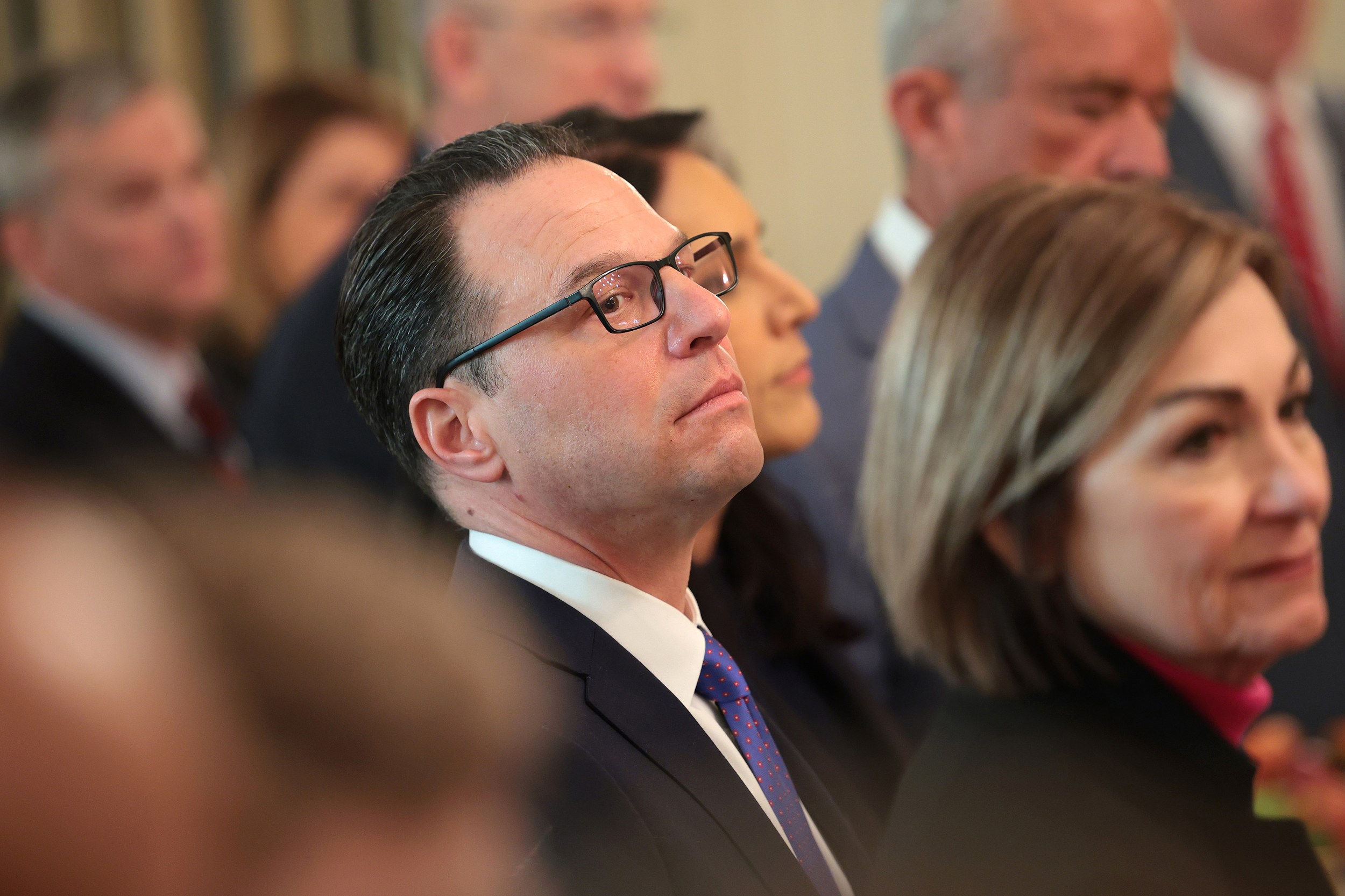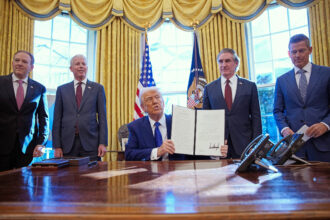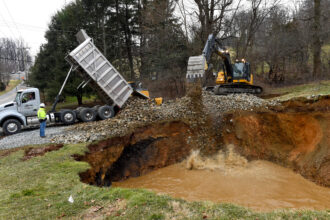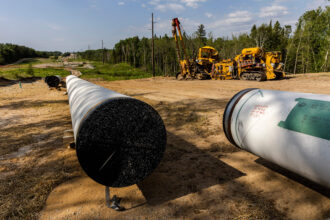Federal funding to Pennsylvania for climate-related and other programs will be restored, Gov. Josh Shapiro said, reversing a Trump administration freeze after lawsuits by Pennsylvania and almost two dozen other states.
Shapiro sued the Trump administration Feb. 13 in federal court over the funding freeze, arguing that it had illegally halted or subjected to an unspecified review $2.1 billion in federal funds that had been committed to Pennsylvania after being approved by Congress.
The frozen funds included money for remediating Pennsylvania’s many abandoned mines, for helping the state reduce greenhouse-gas emissions and for reducing energy costs for homeowners. The freeze also prompted separate legal action by 22 other states and the District of Columbia, leading a federal judge in Rhode Island to order the administration to lift its spending ban.
Federal money to Pennsylvania’s Department of Environmental Protection that had been frozen includes $369.1 million for a program to reduce climate pollution under the Inflation Reduction Act, the flagship climate law passed by Congress and signed by former President Joe Biden. The agency had also been subject to an unspecified restriction in $264 million of funding for a restoration program for abandoned wells whose original owners had gone out of business or could not be found. Other environmental programs had also been subject to the funding freeze.
Shapiro said all the funds specified by the Pennsylvania lawsuit had been unfrozen and would be supplied to state agencies as originally planned.
“Every dollar that we identified at the filing of our lawsuit is currently unfrozen, and once again accessible to all Pennsylvania state agencies,” he said at a news conference on Monday. “With the funding resumed, we will now resume critical programs and infrastructure programs that have been jeopardized by this illegal freeze.”
Neither the White House nor the U.S. Environmental Protection Agency immediately responded to requests for comment.
After the funding was frozen in late January, Shapiro said he first tried to avoid legal action by talking with Trump administration officials to try to get the funds flowing again. He said those talks led to some progress but the funds remained tied up weeks later, in defiance of multiple court orders to release them.
The first-term Democratic governor declined to say what had led the Trump administration to release the funds, saying only that he had been “direct” with administration officials when he met them at the White House on Friday. “When you’re in the room and directly engaging in that way, those conversations need to remain private,” he said, in answer to a question at the news conference.
“As a result of that direct engagement last week, our funding is now unfrozen. They are now following the law,” he said.
Although the funding specified by the lawsuit is now restored, other federally funded parts of the DEP budget are still “at risk,” warned David Hess, a former DEP secretary who now writes an environmental newsletter.
“Unfreezing the funds that were specifically mentioned in the lawsuit was a good thing but that certainly doesn’t end the chaos,” he said. “We’re playing a version of ‘whack-a-mole’ here as different issues pop up.”
Environmental programs such as those on air and water quality, which are operated by the state on behalf of the federal government, were not part of Shapiro’s lawsuit and could face cuts from the Trump administration, Hess said. He estimated those programs are worth around $50 million a year to the DEP.
“Those federal funds are still at risk, and it causes tremendous uncertainty in how those programs are going to be run until that risk is cleared up,” he said.
Despite the release of the funds, the Shapiro administration will not drop the lawsuit until it’s formally concluded, said Shapiro’s spokesman, Manuel Bonder. “The lawsuit Governor Shapiro filed will move forward until we obtain a final judgment or binding agreement requiring the Trump Administration to comply with its legal obligations,” Bonder said in a statement.
About This Story
Perhaps you noticed: This story, like all the news we publish, is free to read. That’s because Inside Climate News is a 501c3 nonprofit organization. We do not charge a subscription fee, lock our news behind a paywall, or clutter our website with ads. We make our news on climate and the environment freely available to you and anyone who wants it.
That’s not all. We also share our news for free with scores of other media organizations around the country. Many of them can’t afford to do environmental journalism of their own. We’ve built bureaus from coast to coast to report local stories, collaborate with local newsrooms and co-publish articles so that this vital work is shared as widely as possible.
Two of us launched ICN in 2007. Six years later we earned a Pulitzer Prize for National Reporting, and now we run the oldest and largest dedicated climate newsroom in the nation. We tell the story in all its complexity. We hold polluters accountable. We expose environmental injustice. We debunk misinformation. We scrutinize solutions and inspire action.
Donations from readers like you fund every aspect of what we do. If you don’t already, will you support our ongoing work, our reporting on the biggest crisis facing our planet, and help us reach even more readers in more places?
Please take a moment to make a tax-deductible donation. Every one of them makes a difference.
Thank you,











